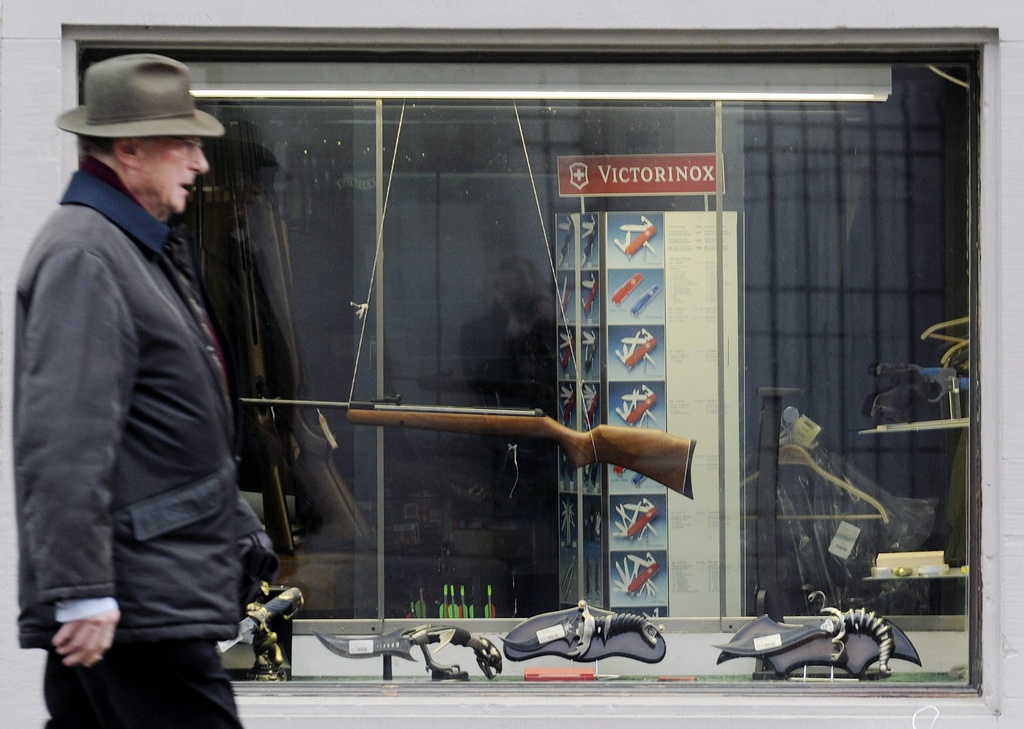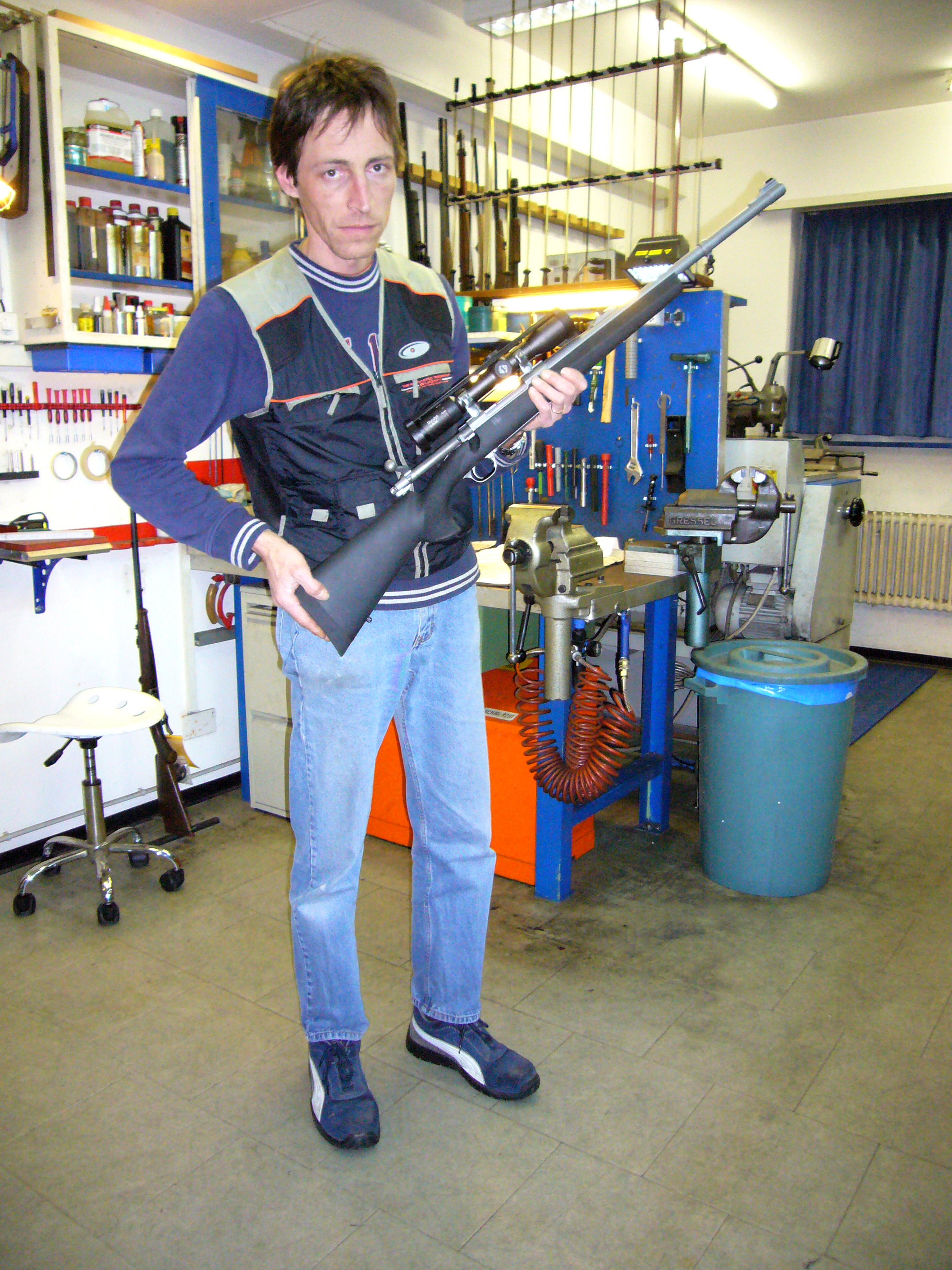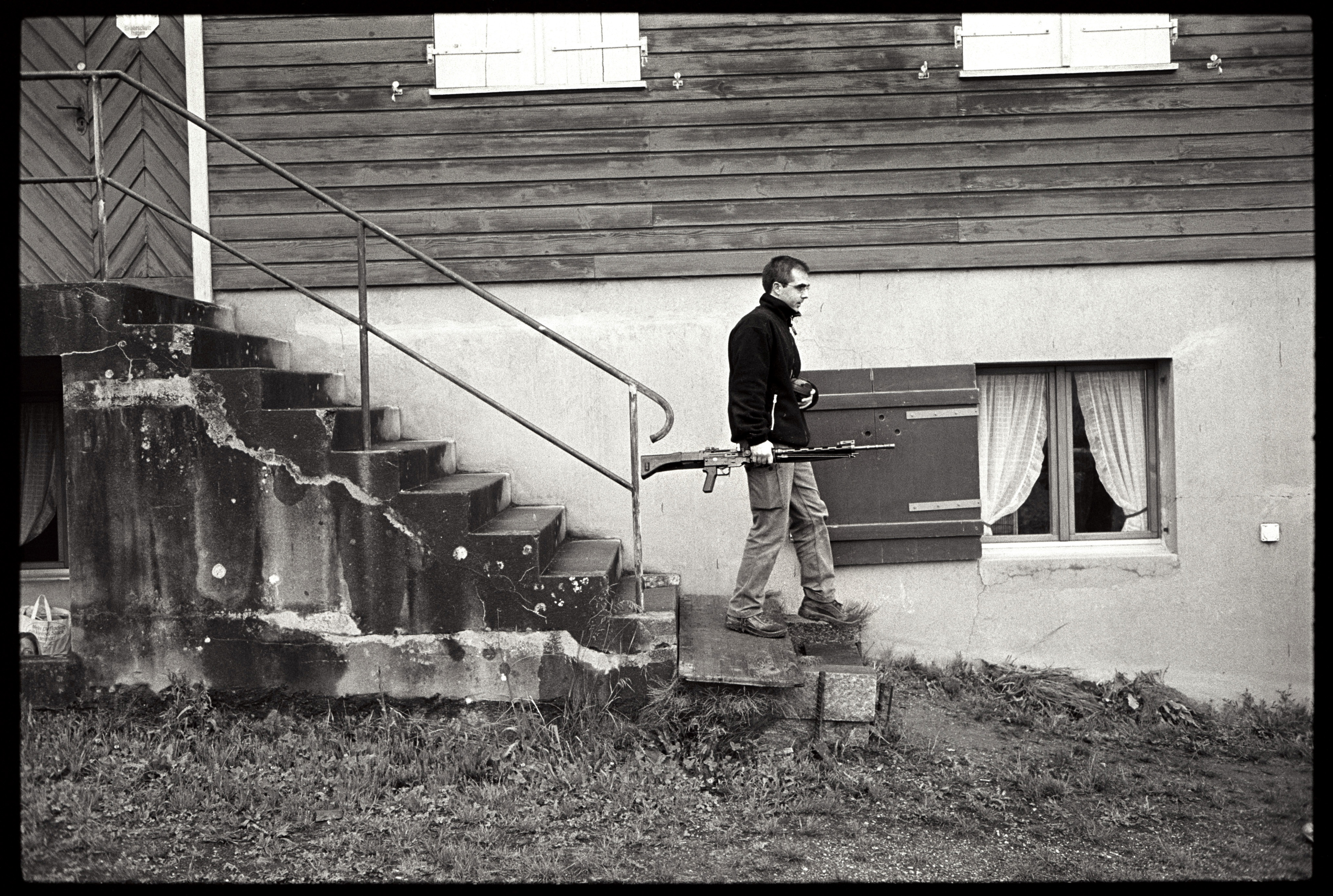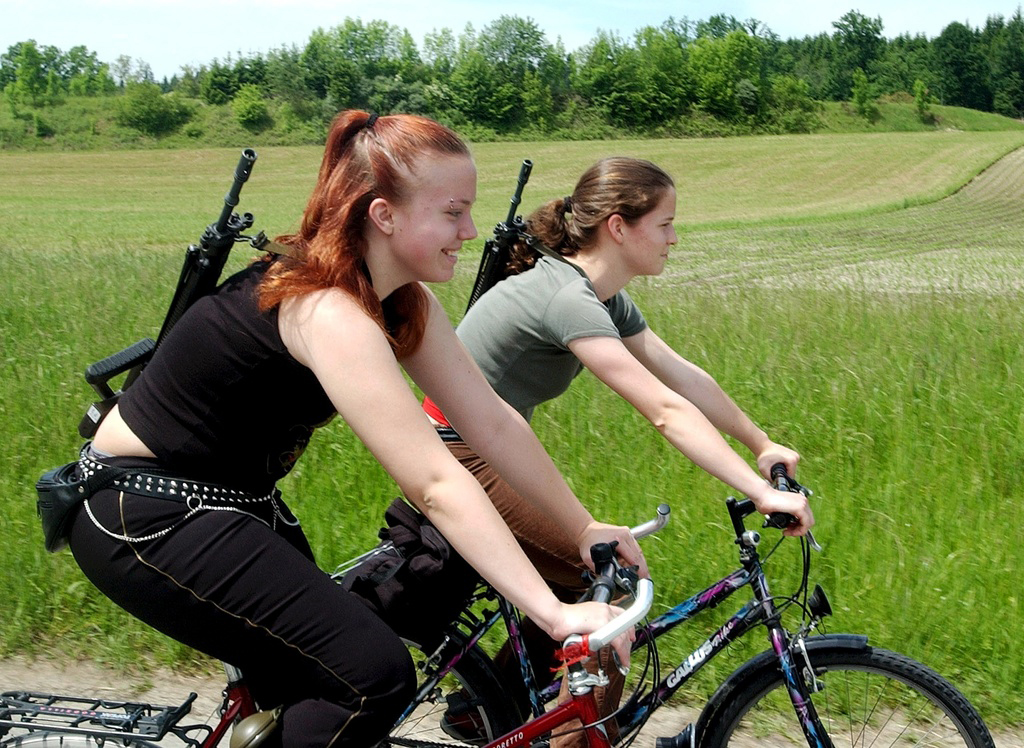Anti-gun initiative faces voters’ verdict

Following an emotional campaign the Swiss on Sunday have the final say on a proposal to restrict access to firearms, including a ban on keeping army-issue guns at home.
The nationwide ballot pits urban citizens against the more traditional voters in rural Switzerland; the centre-left challenges the centre-right and rightwing majority, while women could tip the balance.
The initiative, launched four years ago, seeks to introduce stricter rules for gun possession, notably a nationwide database and a more comprehensive licensing system.
The supporters of the proposal – an alliance of about 80 organisations backed by centre-left political parties – hope to reduce the number of suicides and incidents of domestic violence.
Parliament and the gun lobby have come out against the proposal, saying tighter laws would undermine trusted Swiss values and cherished traditions, in particular the militia army.
The government said current laws were sufficient to protect against misuse.
Support slipping
Early opinion polls in January showed the anti-gun initiative enjoying widespread support, but the 13 per cent margin dwindled to just two per cent in the space of just three weeks.
Opponents from centre-right parties successfully mobilised their grassroots according to the leading gfs Bern research institute.
“However, the outcome of the vote remains open,” said the institute’s Claude Longchamp at the beginning of this month.
He added that women could be a decisive factor in the ballot which is expected to draw above-average public interest and result in a high turnout – more than 50 per cent.
Emotions
The nationwide ballot – the first this year – was preceded by a relatively short but intense campaign by both sides.
Attention-grabbing posters, heated public debates, spats over controversial statistics and a flood of readers’ letters in newspapers were evidence of feverish emotions in the run-up to the vote.
Police opened an inquiry into the illegal use of toy weapons for a local campaign event by a pacifist group, while the federal chancellery admonished opponents of the ban for using official stationary to woo voters when a local rifle association sent out anti-gun initiative leaflets in official envelopes to several hundred young citizens.
In the run-up to the vote, Defence Minister Ueli Maurer also hit the news headlines with verbal attacks – seen as calculated and provocative – against supporters of the initiative and women in particular.
Justice Minister Simonetta Sommaruga, who is known to personally support the anti-gun initiative, toed the official government line at numerous panels. This earned the Social Democrat minister good marks in an editorial of the prestigious Neue Zürcher Zeitung.

More
People’s initiative
Polarisation
The second stage of the public campaign was marked not only by strong mobilisation but also by antagonism between the left and the conservative right, according to political scientist Longchamp.
“There is an extraordinary polarisation between the parties,” he said.
Longchamp also noted that the supporters of the initiative limited their campaign to the main cities hoping to win votes among the urban population.
The opponents for their part have been most active with numerous committees and groups in rural regions where residents generally favour more conservative positions.
“But it is the many bigger and smaller towns across the country which hold the key to success,” Longchamp says.
Local votes and elections are taking place in more than half of Switzerland’s cantons.
The issues range from nuclear energy, tax amnesty, education and the promotion of bicycles to the funding of the National Museum and a theatre.
Voters choose a new government in Appenzell Outer-Rhodes and Bern holds a by-election for a senate seat.
About five million Swiss, including registered expatriates, are eligible to take part in the votes.
As a rule ballots on specific issues take place four times a year.
As part of extended trials with electronic voting a number of citizens from several cantons, including registered expatriates, are allowed to use computers to participate in the ballots.
Parliamentary elections – taking place every four years – are scheduled for October 23.

In compliance with the JTI standards
More: SWI swissinfo.ch certified by the Journalism Trust Initiative















You can find an overview of ongoing debates with our journalists here . Please join us!
If you want to start a conversation about a topic raised in this article or want to report factual errors, email us at english@swissinfo.ch.